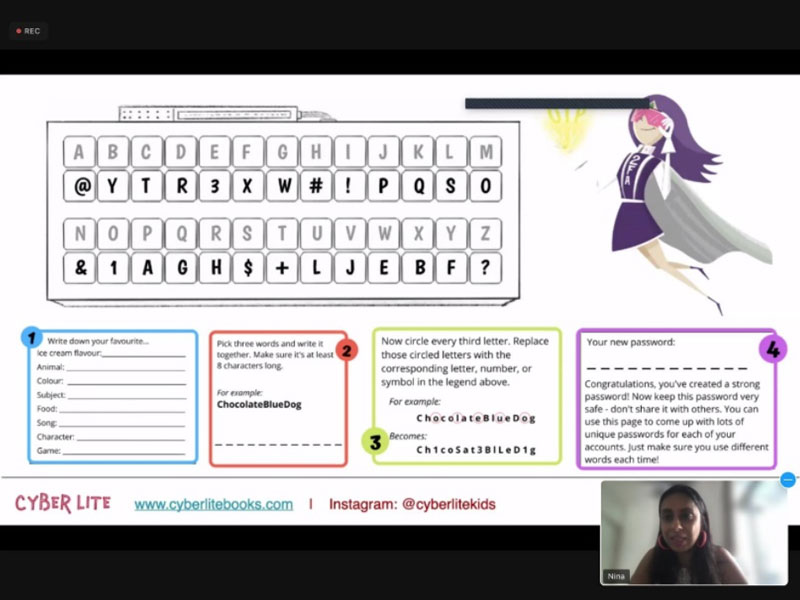While the Internet presents a world of opportunities, it can also be a precarious place for the young – especially when they don’t recognise the danger signs.
That is why the beneficiaries of Yellow Brick Road – primary-school-aged children of prisoners or ex-prisoners – participated in a Cyber Lite Workshop in which they learnt to spot and respond to dangers on the Internet.
The workshop, sponsored by Acronis Cyber Foundation, was held on Saturday, 19 June. The 36 participants learnt about hackers, phishing, fake news, cyber-bullies, and “groomers” who befriend children on the internet with the intention of exploiting them.
Ahead of the workshop, the children received a resource bag, which included an activity book that could be used during and after the session, as well as some snacks.
Through polls, exercises from the activity book, real-life examples, and graphics and videos, they learnt about situations they could find themselves in while online, and ways to respond, including seeking out trusted adults, such as parents or teachers, for advice and help.

The children were also given practical tips on password creation and identity protection, and taught the importance of two-factor authentication passwords. With the help of the facilitators, the children and their families learnt to set up these safety features.
The children were encouraged to create a Cyber Safety Pledge for themselves and their families, so the Internet would remain a safe place for them. Following that, they had a chance to ask any questions they had about cybersafety.
For 12-year-old Naomi*, the workshop was an eye-opener. “I learnt many things, including how to be careful when using social media.”
Opportunities like this bolster the cognitive and socio-emotional skills of children who are part of the Yellow Brick Road programme, while also skilling up their caregivers. These children, who have a parent in prison or one who has been out of prison for less than two years, also receive support through casework and counselling, group work, tuition services, and participation in family-bonding activities.
*Name has been changed to protect the beneficiary’s identity
